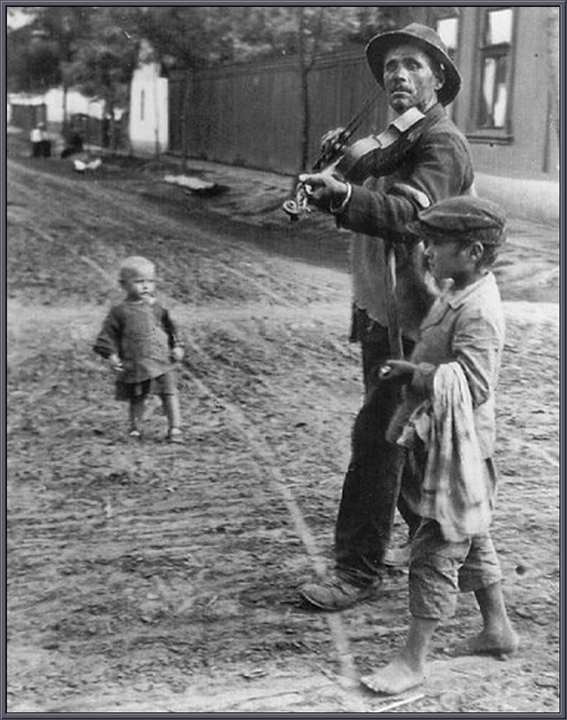André Kertész, “The Violinist’s Tune, Abony, Hungary, 1921″/ “Blind Musician, Hungary 1921”
“I recognize, with my whole body, the straggling villages I passed through on my long-ago travels in Hungary and Rumania…” (Roland Barthes, 1981).
This passage is written in Roland Barthes’s book, Camera Lucida, under a photograph by André Kertész, The Violinist’s Tune, Abony, Hungary, 1921 or also known as Blind Musician, Hungary 1921. André Kertész was a Hungarian-born photographer who moved to France in 1925 and to the United States in 1936 due to the Nazi’s persecution against Jews.
Roland Barthes–a French philosopher and literary theorist, distinguishes two fundamental concepts in interpreting photograph: Studium and Punctum. Studium is a rational interpretation of the ethical or political culture of a photograph. Punctum is something personally touching that “pricks” and “wound” the viewer.
Studium of Kertész’s photograph could be traced from the study of historical, social, and political of Hungary in the 1920s. At that time, Hungary was under the reign of The Kingdom of Hungary led by Miklós Horthy. The Treaty of Trianon (1920) was separating Hungary’s region into Austria, Romania, the new state of Czechoslovakia & the new Kingdom of Serbs, and Croats & Slovenes. After this treaty, Hungary suffered economic difficulty because of the loss of agricultural and industrial areas.
The punctum depends on the details that are touching to the viewer. For Barthes, the texture of the dirt road in Kertész’s photograph of “blind gypsy violinist being led by a boy”, gives him “the certainty of being in Central Europe”. (p.45). Barthes no longer sees the photograph as a medium, instead ‘the thing itself’. It brings the whole of his body to the villages that he passed through his long-ago journey in Hungary and Rumania. (p.45).
In my perspective, seeing Kertész’s photograph, The Violinist’s Tune, is a life-affirming experience. Today, Hungary is totally different, but the boy in this photo reminds me of the warm-hearted people that I meet in this country.


